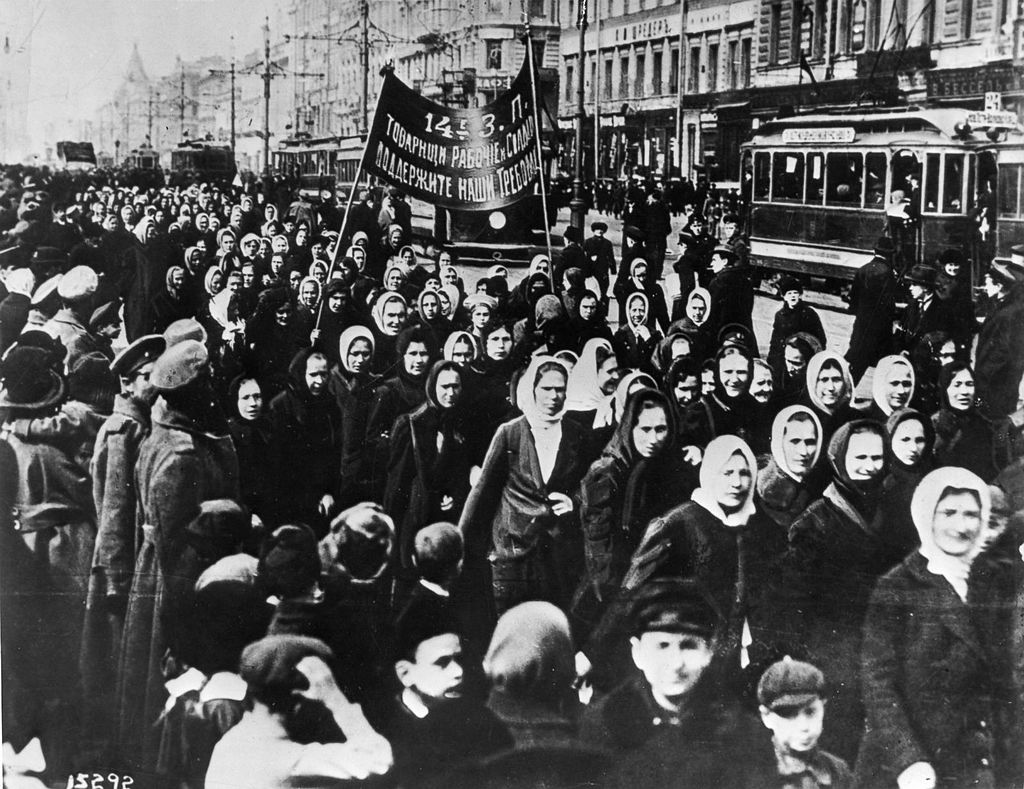The classic Marxists of the nineteenth and early twentieth centuries – Karl Marx, Frederick Engels, Clara Zetkin, Rosa Luxemburg, V.I Lenin, Alexandra Kollontai, developed a theoretical framework that tied in the fight for women’s liberation to the struggle of socialism. While their theories on occasion require updating, their enormous contributions have too often been dismissed or ignored.
In addition, the history of those who carried on the Marxist feminist tradition during the mid-twentieth century has frequently been rendered invisible — yet these activists and theorists provided an indispensable thread that continued between the victory of women’s suffrage in the 1920s (often referred to as US feminism’s ‘’first wave’’) and rise of 1960s movements for women’s liberation (known as its ‘’second wave’’).
Marx and Engels located the root of women’s oppression within the nuclear family in class society. They understood that the role of women as biological ‘’reproducers’’ results in their subordinate status inside the domestic realm, and consequently throughout society. In capitalist societies, women in property-holding families reproduce heirs; women in working-class families reproduce generations of labor power for the system.
The capitalist class has become dependent on this method of ‘’privatised reproduction’’ within the working-class family because it lessens its own financial responsibility for the reproduction of labor power, which is instead largely supplied by unpaid domestic labor performed primarily by women. The precondition for women’s liberation thus requires an end to their unpaid labor inside the family. This, in turn, necessities a socialist transformation of society, which cannot be achieved gradually but out only through a process of social revolution, in decision battle between classes.
Social Class and Women’s Oppression
In 1909, Russian revolutionary Alexandra Kollontai wrote a text which proved to be a defining contribution to the Marxist analysis of women’s oppression, ‘’The Social Basis of the Woman Question’’. In the text she argued that:
“The women’s world is divided, just as is the world of men, into two camps: the interests and aspirations of one group bring it close to the bourgeois class, while the other group has close connections to the proletariat, and its claims for liberation encompass a full solution to the woman question. Thus, although both camps follow the general slogan of the ‘liberation of women,’ their aims and interests are different. Each of the groups unconsciously takes its starting point from the interests and aspirations of its own class, which gives a specific class coloring to the targets and tasks it sets for itself . . . however apparently radical the demands of the feminists, one must not lose sight of the fact that the feminists cannot, on account of their class position, fight for that fundamental transformation of society, without which the liberation of women cannot be complete.”
But on the other side of Kollotai’s approach involved an effort to convince working-class men of the need to support the demands of women workers. The Bolsheviks intervened in strikes and struggles involving the majority of male workers, arguing that working men’s class interests lay in fighting for demands such as maternity protection and equal pay for women.
In addition to Kollontai, Marxist feminist theorist Clara Zektin wrote on how women are subjected to oppression within the nuclear family. As she argued in 1896, “Family law dictates to upper-class wives that their husbands are their superiors. (‘’She is still dependent on her husband ‘’) The guardianship of the weaker sex has survived in the family law which still states: And he shall be your master.’’
She also stated:
“The bourgeois woman not only demands her own bread but she also requests spiritual nourishment and wants to develop her individuality. It is exactly among these strata that we find these tragic, yet psychologically interesting Nora figures, women who are tired of living like dolls in dollhouses and who want to share in the development of modern culture. The economic, as well as the intellectual and moral endeavors of bourgeois women’s rights advocates, are completely justified.”
In the same contributions, Zetkin also argued that middle-class women:
“Are not equal to men in the form of possessors of private property as they are in the upper circles. The women of these circles have yet to achieve their economic equality with men and they can only do so by making two demands: The demand for equal professional training and the demand for equal job opportunities for both sexes. This battle of competition pushes the women of these social strata towards demanding their political rights so that they may, by fighting politically, tear down all barriers which have been created against their economic activity.”
There is an important distinction, noted by Zetkin above, between the ruling class and middle-class women in which oppression operates within different social classes.
Many Marxists arrived at roughly the same theoretical starting point as socialist feminists by the late 1960s and early 1970s — mostly sharing the same goal. Both schools of thought incorporated Marxist theory to better understand women’s unpaid labor inside the family and its connection to women’s oppression as a whole within capitalist society.
The contrast between socialist feminism and Marxist feminism however is that for socialist feminism, a critique of patriarchy overlapped but differed from the Marxist emphasis on the primacy of the capitalism and class exploitation. Instead, socialist feminism sought to synthesise feminist analyses of gender inequality, social reproduction and economic reproduction. Overall both schools of thought have played a vital role in the advancement of women’s liberation, however, more needs to be done to revive the Marxist feminist tradition for its application in contemporary feminist politics. Thus, only a Marxist approach to feminism can truly liberate women from a patriarchal society.
Halima Abdi, is a member of the YCL’s London branch



